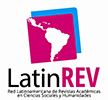the temptation in four acts
ARK:
https://n2t.net/ark:/35231/pergaminho.v1n1.8Keywords:
Semiolinguistic Theory, Argumentative strategies, Devil, BibleAbstract
In the Bible, there is a call for harmony between men and God; however, there is a character known as the Devil, who acts against that, discrediting man before God, and the latter before man. This diabolic intervention proves to be relevant in the biblical context, mainly through language. This motivated us to investigate the seductive and subversive discourse manifestation of the Devil. The goal of this work is, therefore, to analyze the argumentative strategies in the statements of the referred character, addressed to Eve, God and Jesus, in the Bible. Thus, to carry out this study, which is eminently bibliographical in nature, we resorted to the Semiolinguistics Theory, by Patrick Charaudeau (2010), who conceives the meaning as an act resulting not only from the circumstances of the enunciation, but also from the interpretive possibilities of the recipient to whom the speech is directed. Considering the scope of the discursive phenomenon, we also resorted to studies on argumentation by Koch (1996) and Ducrot (1987). The objects of analysis are the following texts: the Book of Genesis, Chapter 3; Job, Chapters 1 and 2; and, the Gospel of Matthew, Chapter 4, as portrayed in the Jerusalem Bible. In the proposed verification, the effects of meaning resulting from argumentative strategies in the construction of the persuasive force of these statements will be evaluated, especially the role of denial, citation, restriction, questioning and deduction. We observe that such procedures act as tools of persuasive pressure on the Devil's interlocutors, a fact that shows that the discourse in question is configured as a tempting argumentative activity.
Downloads
References
ARISTÓTELES. Retórica. Trad. Manoel Alexandre Junior. 2. ed. São Paulo: Imprensa Nacional/Casa da Moeda, 2005.
BÍBLIA. Português. Bíblia de Jerusalém. 5. ed. São Paulo: Paulus, 2008.
BRANDÃO. Helena H. Nagamine. Introdução à análise do discurso. 8. ed. São Paulo: UNICAMP, 2002.
CHARAUDEAU, Patrick. Linguagem e discurso: modos de organização. Trad. Ângela S. Corrêa & Ida Lúcia Machado. São Paulo: Contexto, 2010.
DUCROT, Oswald. O dizer e o dito. Trad. Eduardo Guimarães. Campinas: Pontes, 1987.
GIRARD, René. Eu via Satanás cair do céu como um raio. Trad. Vasco Farinha. Lisboa: Instituto Piaget, 2002.
KOCH, Ingedore Grunfeld Villaça. Argumentação e linguagem. 4. ed. São Paulo: Cortez, 1996.
PERELMAN, Chaim; OLBRECHTS-TYTECA, Lucie. Tratado de argumentação: a nova retórica. Trad. Maria Ermantina Galvão. 2. ed. São Paulo: Martins Fontes, 2005.
QUINZON. Marie, Therese. Dicionário cultural do cristianismo. São Paulo: Loyola, 1999.
SILVA, Antônio Gilberto. A Bíblia através dos séculos. 15. ed. Rio de Janeiro: CPAD, 2004.
Downloads
Published
How to Cite
Issue
Section
License
Copyright (c) 2021 Revista Pergaminho

This work is licensed under a Creative Commons Attribution-NonCommercial 4.0 International License.


